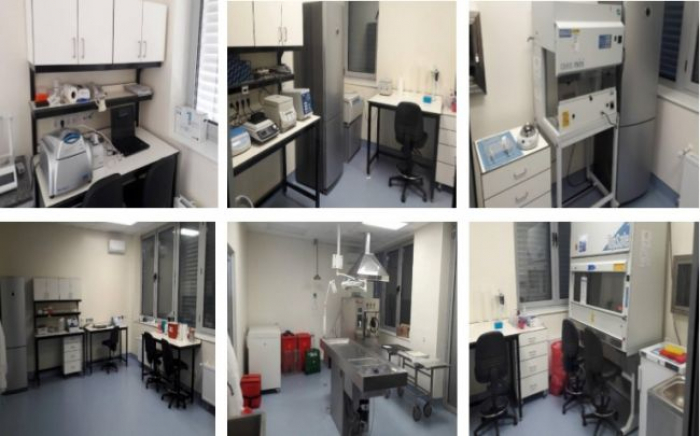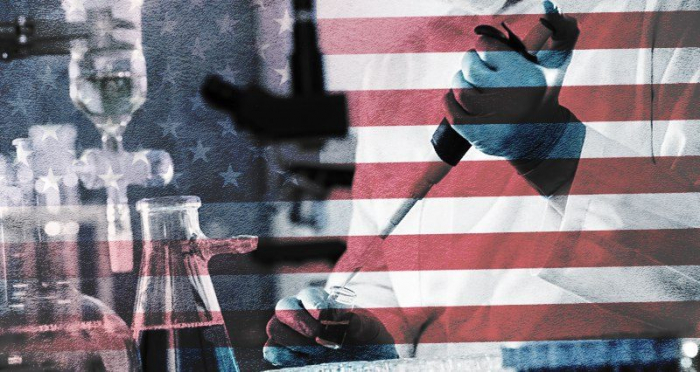The memorandum signed by Lavrov in Yerevan envisages the monitoring of the Pentagon-created biological laboratories in Armenia by specialists from Russia’s health and defense ministries. As far as is known, the Defense Threat Reduction Agency (DTRA) under the U.S. Department of Defense has set up biological labs in 25 countries, including Armenia, Georgia, Ukraine, Kazakhstan and Tajikistan, which border with Russia. Three out of these countries are even members of the Collective Security Treaty Organization (CSTO).

Armenia joined this program in 2008. According to WikiLeaks, the U.S. government then promised the Armenian government $9 million for the creation of two labs.

In 2018, a whole network of biological laboratories worth $50 million was created in Armenia. Twelve U.S. biological labs are currently operating in Armenia. Even in Gyumri, where Russia has a military base, the Pentagon has set up its own mysterious biological laboratory. Although these labs formally subordinate to the Armenian government, they were headed by Major Matthew Pope, a Pentagon official.
Why these labs are called “mysterious”? After the issue was revealed, Moscow has repeatedly expressed its serious concern over these laboratories set up in the immediate vicinity of its border. Russia was considering the activities of these labs to be “military-medical-biological”. Such a statement was also voiced by Sergey Lavrov at a CSTO meeting held on May 29, 2020.
The Armenian-based center, officially called “the center for disease control and prevention”, studies pathogens - viruses and strains that cause various epidemics. It makes perfect sense for Russia to regard the U.S. deployment of these labs in the CIS member states as a threat to its security. Why should the Yankees come and study their favorite “virus” not in their own country or neighboring countries, but on the other side of the world? Logically, the functioning of these labs in the U.S. is prohibited by law and they are not allowed to operate in U.S. states. But this is just one side of the issue...
Allegations of the production of biological weapons at these labs have repeatedly emerged in the media. In 2018, the former intelligence chief of Georgia, Igor Giorgadze, claimed that an American laboratory, called Lugar Center, operating in his country was, in fact, producing biological weapons, did not ruling out human experimentation.

What’s the most interesting is that the Tbilisi-based Lugar Center employees representatives of three American private biological companies – CH2M Hill, Battelle and Metabiota, which are known as Pentagon and CIA contractors. These three companies have set up American labs in Armenia.

The fact that instead of the Centers for Disease Control and Prevention, CDC under the U.S. Department of Health, the Pentagon has undertaken to set up such labs abroad is strange and arouses suspicion.
After the Russian leadership was well aware of the true essence of this issue, Moscow began to insist on the possibility of controlling these labs. However, the then-Sargsyan government in Armenia failed to keep its promise. This factor’s role is not ruled out in Moscow’s unexpected calmness over the overthrowing of the Sargsyan government in 2018.
The Pashinyan government first agreed to negotiate with Moscow on this issue, but then tried to prolong these talks whenever possible. In the fall of 2019, Moscow and Yerevan seemed as close as possible to signing a memorandum of understanding on the control of American biological labs. However, Pashinyan rejected to sign the document at the last moment. The work on the memorandum was completed in October 2019, and the document was supposed to be signed during Lavrov’s Yerevan visit on November 11-12, but the Russian minister had to return to Moscow left-handed.

Instead, DTRA representatives arrived in Armenia in 2019 to agree on an extension of the operation of biological labs until 2025.

In the spring of 2020, Khachik Asryan, Chairman of the “Armenian Eagles: United Armenia” party, urged the Pentagon to cease dangerous biological experiments in Armenia.
Having suffered a heavy defeat in the Second Karabakh War, it seems that Yerevan, which gave up hope of someone’s support, including Russia, has signed a Moscow-demanded document. The non-disclosure of the document’s text arouses interest. Most likely, the reason is that the document allows Russian specialists to control the Armenian labs.
Currently, Moscow is openly striving to achieve the signing of such documents with Georgia, Ukraine, Kazakhstan and Tajikistan.
Vusal Mammadov
AzVision.az
















































